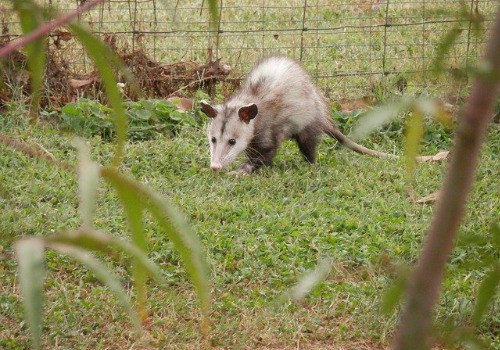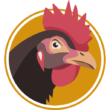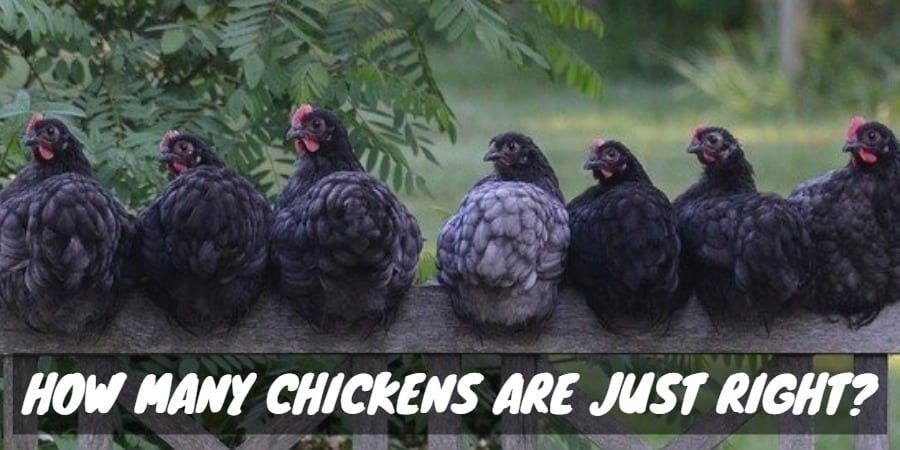It’s unnervingly common to find headless chickens in the pen. Common culprits for this include raccoons, weasels and owls. Some of the other predators to watch out for when raising chickens include foxes, coyotes, bobcats, feral cats, hawks and dogs.
Chickens, as large-bodied and slow-moving birds, are a natural prey animal for many predators. The same qualities that make them attractive to humans as livestock make them a tasty treat for wild animals. This is why it’s so important to keep your chickens in a secure enclosure with a roof that will ward off aerial attacks.

If you discover that something is killing your chickens, the method of death can help to identify the most likely suspect:
- Missing eggs are often stolen or eaten by small pests like rats and snakes. Skunks, opossums and raccoons are other likely culprits. Members of the crow family, including jays, are also known for eating eggs. Hens will also sometimes eat their own eggs or the eggs of other chickens in the coop, so you’ll want to rule that out as a possibility as well.
- Missing chickens can be a sign that a large predator carried off the whole bird, especially if there are feathers scattered on the ground at the site of the disappearance. Foxes, coyotes, bobcats and dogs are all capable of carrying away a full-size chicken. Smaller chickens, such as bantams, can be abducted by hawks and owls. If it’s a chick that’s missing, the culprit may have been a snake, cat or even a rat.
- Chickens found dead but not missing any parts are most commonly killed by dogs and sometimes cats. Dogs usually kill birds by grabbing them and shaking them. They are more likely to kill for sport than for food, so they may get bored after the chicken has died and run off in search of more prey.
- Chickens found bloodied but mostly intact are usually the victims of the weasel family. Weasels like fishers, martens and ferrets kill for sport and can slip through very small openings to enter a coop.
- A chicken found without its head is most often the victim of an owl or raccoon. Raccoons are the most common culprit if the chicken is found near a fence. The raccoon will reach through the wire, grab the bird, and pull the head through the wire while leaving the body behind.
You can look for other signs that can point to the likely intruder, such as scat and footprints. It may also pay to set up a motion-activated camera to catch a peek at the killer.
Knowing what type of predator is killing your chickens can help with protecting the rest of your flock against future attacks.
Why Do Owls Eat Chicken Heads?
If you find a chicken without a head in the middle of the yard or run, the most likely culprit is a large owl such as a Great Horned Owl. You’ll notice a lack of scattered feathers and lack of footprints around the body.
The reason that owls target a chicken’s head is that the brain is an owl’s favorite meal. Brains are high in protein and relatively easy to eat.
Owls prefer to eat in seclusion rather than out in the open. They will sometimes tear off the head and eat it away in a tree. If the owl has time, it will come back to feed on the rest of the carcass.
Protecting Your Birds From Predators

The best way to keep your chickens safe and secure is to keep them in an enclosed space. Sturdy fencing with chicken wire will help to keep out larger predators. Be sure the wire mesh is small enough that a raccoon cannot fit its paws through to grab an unsuspecting hen.
The coop itself should seal up against smaller pests and predators at night. Be sure that all doors and windows can slide tightly shut. A rat or weasel can slip through a gap just an inch or two wide.
Pest deterrents can also help to keep away predators. Motion-activated lights or alarms are one good option. Some people have good luck putting out a scarecrow or dummy owl that can frighten away other birds, especially hawks.
[amazon bestseller=”Solar Powered Ultrasonic Animal”]
Keeping a guard for your hens is another good option. Dogs are a good choice as long as they don’t have any interest in chasing the chickens themselves. If you want something that requires a bit less upkeep than a dog, you might consider keeping a turkey or goose to defend your hens. These birds are larger than chickens and can be quite bold about chasing away predators. An adult goose has no problem facing down a coyote.
Roosters can also be very good protectors of a flock. They are armed with spurs that serve as natural weapons, and their aggressive attitudes can help to drive away predators.
Bear in mind that keeping a guard is not a sure method for protecting your hens. It’s best to use a guard in combination with other techniques to ensure the best chance of safety for your flock.
If you’re reading this article and either have chickens or are thinking of raising them yourself, you’ll now better understand the importance of a quality chicken coop. This article — The Complete Chicken Coop Guide for Beginners — may be incredibly helpful to you.





I woke up this morning to find my chicken dead with her head ripped off and a trail of feathers leading to her body from the fence and I think she was by the fence and a raccoon grabbed her head threw the fence and ripped it off and she was able to run a few feet before dying because she didn’t have her head.
im sorry to hear that but the same thing happened to my chickens three of them died one was one sunday 12/11/22 and the next day was one more but only mine was by the door and it looked like they were pulled under then got their heads pulled off. Can racoons grab chickens?